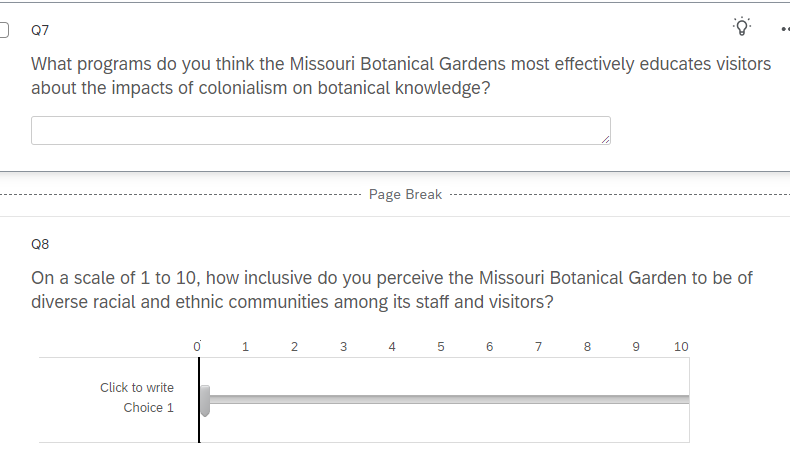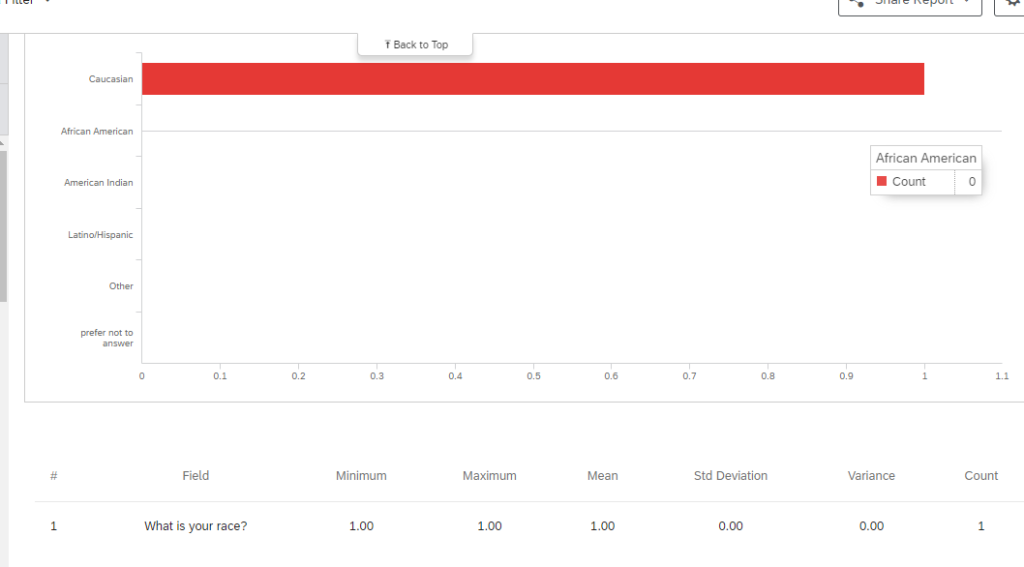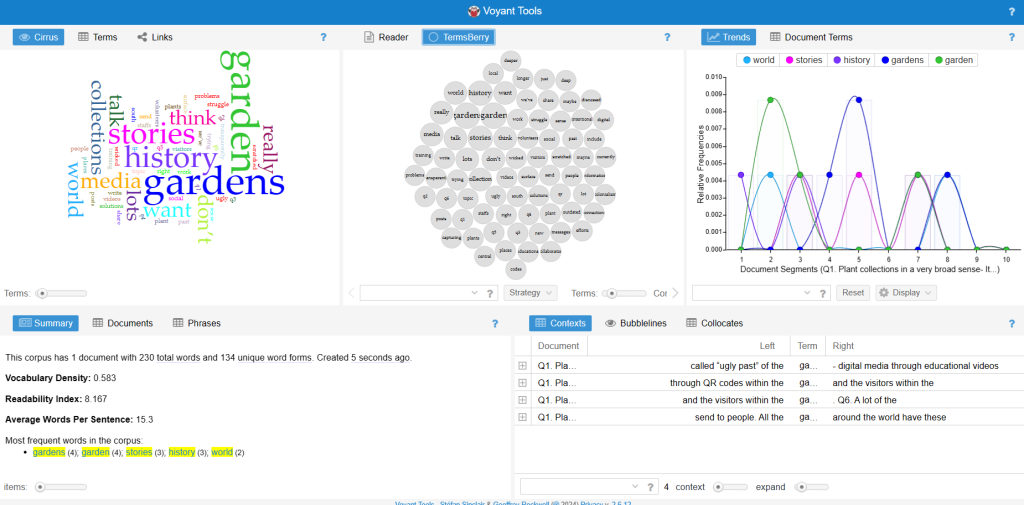My research team and I explored the impact of colonialism on both the garden and the herbarium. Our research unfolded through two distinct phases: surveys and focus groups. Initially, we approached the survey aspect of our research with enthusiasm and diligence. We created questions, hoping to have engagement with our garden partners. However, despite our concerted efforts, the response to our surveys was regrettably limited. After this phase, we received only one response, leaving us concerned and prompting reflection on our methodology. During our reflection, we considered the possibility that the weightiness of our topic, colonialism, may have hindered participation. Or that individuals may have struggled to answer due to varying experiences and other factors. While undoubtedly crucial, addressing such topics in a survey format may have posed a barrier to engagement. Despite this setback, our commitment to exploring this issue remains unwavering.

While our initial attempt at surveys may not have yielded the desired outcomes, it serves as a valuable learning experience. Moving forward, we recognize the need for a more nuanced approach, one that balances the gravity of our subject matter with accessibility and engagement. After thoroughly reviewing the feedback received from our initial survey, which was limited to just one response, we recognized the need to refine and rephrase certain survey questions to enhance clarity and relevance. After refining and rephrasing our questions, we prepared to engage with our garden partners during our focus group sessions. Through these sessions, we gathered valuable information to enhance our data collection efforts. Below are the questions we posed to our garden partners.

Within our research team, responsibilities were divided based on individual strengths. Jaidyn an I took the lead in organizing and facilitating the FG interviews, ensuring that the discussion remained focused and productive. Kyra and Sophia were responsible for recording detailed notes during the interviews and capturing key insights and participant responses. In total, we engaged six participants, divided into two sets for three separate focus groups.
In our recent strategies, we shifted our focus towards data analysis and refinement to extract meaningful insights from our collected data. This phase involved gathering a comprehensive dataset primarily from our focus groups, supplemented by additional sources such as archival records and scholarly literature. We adopted a systematic approach to data analysis, utilizing Voyant to generate visualizations of the focus group transcripts. This facilitated the identification of recurring themes and patterns across the responses, allowing us to gain deeper insights into the underlying issues surrounding colonialism and its impact on the garden and herbarium.
Overall, our efforts have been guided by a commitment to thoroughness and rigor, with each member of our team contributing their expertise to ensure the success of our research endeavors. We remain dedicated to further refining our methods and analysis techniques to produce actionable insights that contribute to the broader conversation on reparative justice.

The image above, generated by Voyant using our focus group interview transcriptions, highlights keywords that were frequently discussed. Words such as “garden,” “history,” “stories,” “talk,” “think,” “media,” “collections,” and “world” emerged as prominent themes in our dataset. These findings were not entirely surprising, given the nature of our research questions.
Our focus was primarily on uncovering what initiatives the Missouri Botanical Garden has implemented or undertaken to “Decolonize/raise awareness” of its lesser-known history—specifically, the fact that its founder, Henry Shaw, owned enslaved individuals. Our aim was to emphasize that the garden is more than just a picturesque destination for botanical enthusiasts; it harbors a complex and often overlooked history that deserves acknowledgment and exploration.
In conclusion, our journey into exploring the impact of colonialism on the garden and herbarium has been both enlightening and challenging. While our initial attempts at surveys may not have yielded the desired outcomes, they have served as valuable learning experiences. We’ve come to recognize the need for a more nuanced approach—one that balances the weightiness of our subject matter with accessibility and engagement.
As we look towards the Fall semester of 2024, we’re aware of the importance of implementing actual results for our overarching goal of Reparative Justice. We understand that this requires a thoughtful and deliberate approach, informed by the lessons we’ve learned thus far.
Moving forward, we’re committed to refining our methodology and embracing a more systematic approach to data analysis and interpretation. Our recent focus on data refinement and analysis, particularly through the use of tools like Voyant, has provided us with valuable insights and a clearer understanding of the recurring themes and patterns within our data.
By continuing to refine our approach and engage with our garden partners, we’re confident that we can make meaningful strides towards our goal of Reparative Justice. Our journey is far from over, but with determination and perseverance, we’re hopeful that we can effect positive change within our community and beyond.